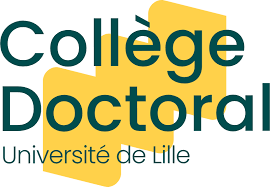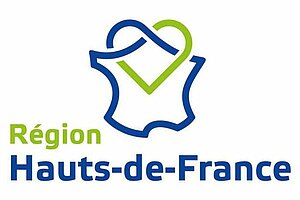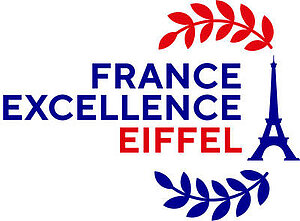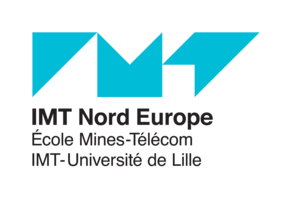International Mobility
The GS SMRE is an internationally-oriented doctoral school.
It encourages incoming and outgoing mobility for doctoral students and when other budgets are not available and additional expenses are required, it is possible to request financial support.
There are several mobility options for doctoral students:
- co-supervision of a thesis, which allows a doctoral student to work jointly with another partner university abroad
- co-supervision of a thesis, which enables research to be carried out in two universities with two thesis supervisors
- research visits to a university, research centre or research field abroad
- participation in international conferences and congresses
Moving abroad’ application
Methodology of the ‘Partir à l'étranger !’ application on the ENT of the University of Lille
Incoming and Outgoing Mobility of Doctoral Candidates and Researchers
There are a number of possibilities for short or long-term international mobility, with two possible situations :
- You are coming to Lille (incoming mobility)
- You are going abroad (outgoing mobility)
What are the essential things to prepare before you leave ?
Take note of the government's instructions
If you are travelling outside the European Union, you must have a valid passport (note: for some countries, the passport must be valid for 6 months after the end of your stay).
How do I apply for a passport?
If you are going to a university outside the European Union, you must obtain a study visa.
How do I apply for a visa?
You can also find information on visa procedures on the websites of consulates and embassies.
You can also consult the country files on the website of the Ministry of Europe and Foreign Affairs.
For some countries, you will need to apply to the legal authorities in the country of residence (residence permit or resident permit).
Please note If you are moving to the UK, please note that the immigration system has changed from 1 January 2021. We recommend that you read this article explaining the new system introduced by the UK government.
If you are travelling outside your place of work or residence in the performance of your duties, you must have a travel order
The travel order allows you to continue to benefit from social security cover during your trip
It may also allow you to be reimbursed for certain mission expenses, depending on the circumstances
The travel order must be drawn up before your departure
- In European Economic Area countries :
You can have your medical expenses reimbursed in certain countries of the European Community as long as you have the European health insurance card, which you must request from the Caisse Primaire d'Assurance Maladie (www.ameli.fr)
If you are not reimbursed on the spot, you must keep the invoices and send them to the CPAM as soon as you return
- In countries outside the European Community :
Some countries have signed bilateral social security agreements with France, enabling staff members travelling abroad to claim reimbursement of their health expenses from their own health insurance fund, depending on the terms of the agreement
- List of countries and content of agreements: www.cleiss.fr/docs/textes/index.html
Medical care and hospitalisation can be very expensive in some countries. You are advised to take out an insurance or assistance contract offering cover in the event of illness abroad and repatriation for medical reasons
For certain destinations with health risks, you will be asked to provide a copy of your vaccination record
- Consult the list of vaccinations to be carried out and medicines to be taken, on the Institut Pasteur website.
International exposure is undoubtedly one of the key features of your thesis. An experience of international mobility opens up new scientific, professional and personal horizons, and is a great asset to put on your CV: follow the guide!
There are a number of ways in which you can receive financial support for your mobility, depending on the criteria, destination and duration of your stay
The University of Lille has also set up a guidance tool to help doctoral students check their eligibility for international mobility grants
Recommendations to follow when preparing for your mobility :
Take out good health insurance to cover medical expenses abroad
Buy exchangeable and refundable plane tickets
Find out about and comply with the rules for entering and staying in the destination country (tests, compulsory quarantine, etc.)
Mandatory registration on ARIANE
Important information:
To find out the situation in each country, check the website of the Ministry of Europe and Foreign Affairs regularly
For a stay of more than 6 months, you must register with the nearest French embassy or consulate as soon as you arrive and keep in touch with French diplomatic representations.
Funding Application for International Outgoing Mobility
![[Translate to English:] image mobilité internationale](/fileadmin/_processed_/1/5/csm_image_mobilite_internationale_7ca0a122b6.jpeg)
Before you leave on your short-term international mobility, you can apply for funding from the school by submitting an application using the provided form :
- Mobility Grant (in French, Word, 318 kB)
News

- Read the FAQ if you want to study in the UK.
- FAQs: International Mobility 2022–2023
Welcoming procedure for international doctoral candidates coming to study at the University of Lille
If you are a doctoral candidate coming to study or conduct research at the University of Lille lab for any period of time, there is a registration procedure available for you to obtain a special electronic card that will allow you easier access to university facilities, buildings, libraries, restaurants, etc.
This procedure applies only to international doctoral candidates who are studying at the University of Lille for a minimum of 2 months as part of an exchange program or hosting agreement.
You will be registered at the University of Lille, with total exemption from registration fees and the Student And Campus Life Contribution (CVEC) payment.
- Registration procedure for international doctoral candidates on supervised exchange programmes (in French, PDF, 113 kB)
- Hosting agreement in French (WORD, 45Kb)
- Hosting agreement in English (WORD, 22Kb)
- Administrative registration form (in French and English, Word, 58 kB)
Other mobility assistance schemes
Moblilex Scheme (Incoming and Outgoing Mobility)
The University of Lille is committed to promoting the international mobility of its students and those of its partner institutions based on the quality of their projects
The Moblilex Scheme is designed specifically for doctoral candidates who are currently enrolled at the University of Lille
Please note that applications from students registered at any other university will not be considered eligible
- Vademecum de l'AAP (890KB, PDF)
- Critères de sélection (842KB, PDF)
- Calendrier (298KB, PDF)
- MOBLILEX 2024-25 FR (1.02MB, PDF)
- MOBLILEX 2024-25 EN (1.02MB, PDF)
GS SMRE Procedure
If you have any questions regarding this program, kindly send a message to moblilex@univ-lille.fr or visit the University of Lille's website
To ensure that the ED SMRE management can process your application, please follow the procedure below for Doctorate-level mobility
Please do not submit anything to faculty departments.
1) The doctoral candidates must submit their completed application to the GS SMRE : sec-edsmre(a)univ-lille.fr for decision and signature of the school management no later than on 20/10/2025 à 5 pm
2) The group management must send the lab ranking tables to the GS SMRE : sec-edsmre(a)univ-lille.fr no later than on 21/10/2025 à 5 pm
The school will then send the signed application forms and the ranking tables to moblilex(a)univ-lille.fr.
The signed application forms will also be returned to the applicants for reference.
Calls for projects from the University of Lille Doctoral College (outgoing mobility)

The Doctoral College of the Université Lille Nord de France offers calls for projects for the international mobility of doctoral students: outgoing mobility of doctoral students as part of their research activity.
call for applications GS - Summer Schools 2024/25

The aim of the scheme is to support students and PhD students from the University of Lille who wish to spend a short period abroad during the summer of 2025.
A limited number of grants will be awarded, for a maximum lump sum of 400€.
They are funded from the Erasmus+ organisational envelope and those eligible are those taking place in an institution located in a member country of the Erasmus+ programme or in the United Kingdom.
Eligibility criteria :
- Be enrolled at the University of Lille in 2024-25
- Period of mobility (physical or virtual) in 2024-25
- Not have received similar support in previous years
Application deadline 12/05/2025
Applications to be sent to: sec-edsmre@univ-lille.fr
For more information on this AAC summer schools: summer-schools(a)univ-lille.fr
Bourse de mobilité internationale des programmes graduées (mobilité sortante)
The University of Lille's Graduate Programmes offer international mobility grants to Masters and PhD students enrolled in the Graduate Programmes.
To find out more about the scheme, go to the page dedicated to mobility grants for Graduate Programmes
Contact the grants manager
Olivia TCHISSAMBOT GOMA
grants-graduate-programmes(a)univ-lille.fr
AAS for international doctoral student mobility at the University of Lille

As part of its support for doctoral research and training, the University of Lille wishes to strengthen the international mobility of doctoral students in its graduate schools.
The aim of this call for proposals is to provide financial support to research units in order to encourage short outgoing international mobility periods of less than 3 months.
It concerns mobility within or outside the European Union for scientific missions in a laboratory, field missions, communications at conferences, workshops, seminars, etc.
The grant will not exceed 1800 euros and will be conditional on a minimum of 50% co-financing - only one application per calendar year and per beneficiary - it will be paid to the beneficiary's laboratory (80% before the mobility and 20% on return)
Recipients of doctoral funding are not required to contribute to the financing.
Doctoral students must submit their complete application by midnight on 4 November 2025 at the latest to appel-a-projet-interne.univ-lille.fr/
- From 6 November 2025 to 3 December 2025: submission to the EG for review and opinion
- By 5 December 2025 at the latest: EG opinions submitted
- Review by the Scientific Council in January 2026 (date to be confirmed)
Contact: affaires-doctorales(a)@univ-lille.fr
For more information on this AAS, please consult the presentation note (in French PDF, 466Kb)
Eiffel scholarships (campus France)
The Eiffel scholarship programme is a tool developed by the Ministry of Europe and Foreign Affairs to help French higher education establishments attract the best foreign students to degree courses at master's and doctorate level
It is designed to train future foreign decision-makers in the private and public sectors in priority areas of study, and to encourage applications from students from emerging countries aged 30 or under for doctoral studies
The DGDRI at ULille has established a four-step process:
- Application proposals: deadline for submitting applications to the EG for review is 7 November 2025 before 12 noon to sec-edsmre@univ-lille.fr
Applications approved by the EG must be sent by Friday 14/11/2025, 5pm, to: bourses-eiffel@univ-lille.fr - Internal commission at the DGDRI: during the week of 17/11/2025
- For selected applications: completion of full applications by 18/12/2025 at the latest
- Submission of applications to Campus France by the DGDRI
A webinar will be held on 16/10/2025 at 1.30 p.m.
univ-lille-fr.zoom.us/j/91698092711
Successful applicants will be notified from 30/03/2025
MERMOZ international mobility grants

The aim of the Mermoz scholarship is to help students gain experience in a research laboratory abroad, thereby helping to improve training in and through research (as part of a research course, from the sixth year of study)
This scholarship is awarded to doctoral students subject to conditions
Erasmus +
![[Translate to English:] logo erasmus+](/fileadmin/_processed_/a/b/csm_logo_erasmus___80532df4b1.jpg)
Erasmus + enables doctoral and post-doctoral students to undertake short or long-term periods of physical mobility in order to do a placement or study abroad

![[Translate to English:] logo graduate programme](/fileadmin/user_upload/edsmre/logos/logo_graduate_programme.png)



